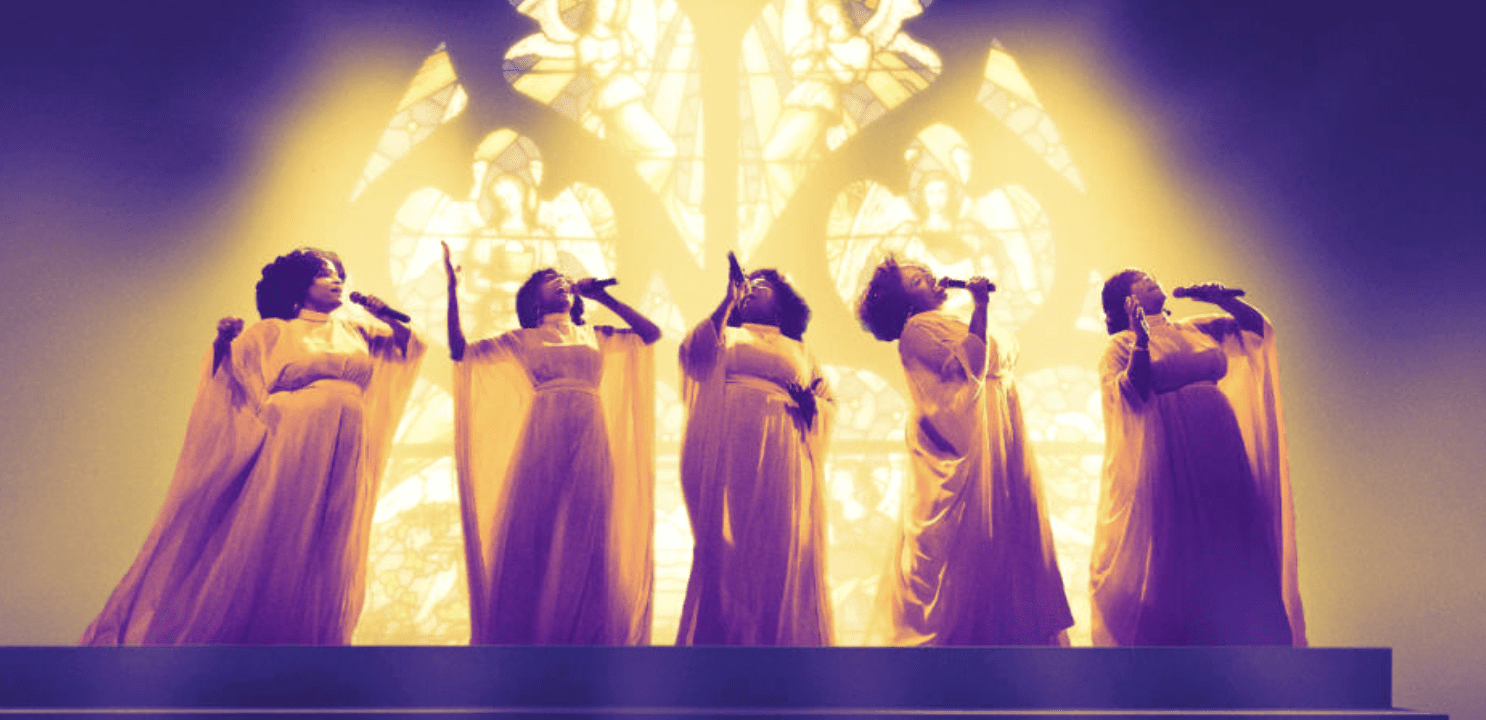

By Cathy Applefeld Olson
The story of the Clark Sisters—the highest-selling female gospel group in history who are credited with bringing gospel to the mainstream—and their trailblazing matriarch Mattie Moss Clark gets its due Saturday, April 11 when Lifetime premieres original biopic The Clark Sisters: First Ladies of Gospel. Exec-produced by Holly Davis Carter through her Releve Entertainment shingle alongside current musical powerhouses Mary J. Blige, Missy Elliott and Queen Latifah, the film features as the five sisters Christina Bell, Angela Birchett, Shelea Frazer, Raven Goodwin and Kierra Sheard, in the role of her mother Karen Clark. The cast shared with Cynopsis their deep connections with The Clark Sisters, and why the struggles and triumphs of the group that skyrocketed from humble beginnings in 1966 in Detroit are as current today as ever.
This project is vast in scope, from the story-telling to the music. What has the experience of creating the film been like for you?
Holly Carter: This journey started 17 years ago. I flew down to Memphis and met with the family and I said, “If you trust me with your story, I promise not to let you down. I often wondered, Why is this taking so long? But the entertainment industry wasn’t ready for redemptive story-telling, for gospel music. When the time was right, it happened. This movie represents time, season and purpose.
Kierra Sheard: This is my first time in a lead role, and to be doing a lead role, and it’s my mom, and trying to sing like my mom—that’s even more special. I could’ve taken that for granted, because she’s mommy, but being able to learn about other parts of her life, her story with her sisters, is really special. I was able to step away from looking at the family as grandma and aunties.
What did you learn about your mom and your family that you didn’t know?
Kierra Sheard I was siting there like, “This happened? That happened?” There’s a part [in the film] about what Auntie Twinkie did with her catalog. She sold her catalog and we kept saying, “A catalog for a Cadillac.” It made me think, Let me make sure I’m not making any decisions just for today and forgetting about my legacy. Especially in this era when social media says you’ve got to go for it immediately, now I think, no way. I didn’t know that story about Twinkie and it was a huge lesson.
Why is now a good time to tell the story of The Clark Sisters?
Angela Birchett: This story is important now particularly when we visit the issue of patriarchy in the church and how that denomination—it’s not the only one and it’s much improved now—but back then it was very much…. a women had to stay in her place. And Mama Mattie Moss suffered because she didn’t think that way. I think it’s going to be very eye-opening and ruffle a few feathers because there are still some people who have that mentality. They may not voice it, they may not act on it, but they’re going to learn. It needs to be said. And not just in the church. It’s in entertainment. It’s in politics. We have to address it, and this movie is going to inch that conversation forward.
Christina Bell: The Clark Sisters all brought something different to the table and they became the biggest female gospel group of all time. People to look up to them; you cannot deny what they have done. That tells me, a woman can lead. Here was a group of women who led so many different genres of music because everyone wanted to know and understand their technique and craft. When they sang live you didn’t know they were switching parts between each other because they were so good at it and they were so in tune with each other.
Raven Goodwin: It was important for me to come aboard this movie simply because the story had to be told. It’s the story of these amazing black women who paved the way for not only gospel artists, but artists of every genre.
What was it like working with Missy, Mary J. and Queen Latifah?
Angela Birchett: Just knowing they were attached was enough. They actually grew up listening to the Clark Sisters and have a true connection to the music. When you hear them speak about the influence of the Clark Sisters, something shifts because the group means so much to them. The Clark Sisters music helps ground them.
What do you hope viewers will take away from the film?
Shelea Frazer: This is not just a gospel music story. It’s also about family, and family over everything. It starts off with us as little girls with our mom guiding us, and it ends with all of us still singing together after all these years. So many similarities to my life and the way I feel about family. At the end of the day, they are sisters before they are Clark Sisters.
Holly Davis: As we started making this movie things started coming to life for me in a different way. At first my heart was all about the message of Mattie Moss and the music and the story of the Clark Sisters as gifted sisters that were pushed by their mother to stardom. I felt like there was a likeness to Joe Jackson and the Jackson 5. But as I got into making the movie, it became real in a different way. The challenges and struggles that women face, that African-American women face, that women who are determined face. This project was done for women, by women. It’s definitely girl power, but the story also taught me that whatever is in your heart, go after it, stay after it and stay loyal. No matter what happened, she was loyal to her girls. And as a mother, I can get with that.






